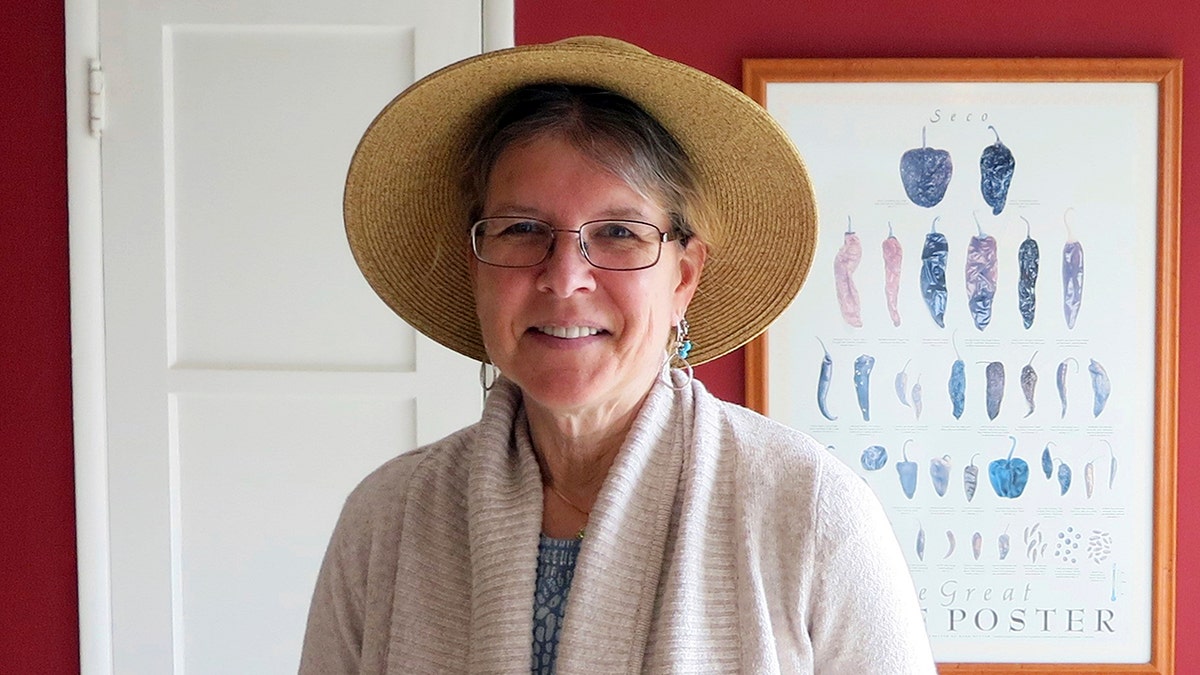
This undated photo provided by Kirk Moody shows his wife, Nancy Paulikas. In 2016, Paulikas, then 55, who had Alzheimer's, wandered away from her family and her body was was found months later. Moody said Wednesday, April 24, 2019, that he was frustrated by the lack of communication between county agencies as he searched for his wife. Moody helped establish L.A. Found, a Los Angeles County program that uses electronic tracking bracelets to help find people with dementia or autism who go missing. ((Kirk Moody via AP))
A new Los Angeles program helps find missing seniors suffering from dementia or autism, with the use of electronic monitoring bracelets.
More than 250 residents in L.A. County have been given the devices since October, which AP says have saved at least four missing people.
SENIORS' WEAKNESS FOR SCAMS MAY BE WARNING SIGN OF DEMENTIA
One of those people included a 53-year-old woman with dementia who got lost around Christmas and wandered away from her family, Los Angeles County Supervisor Janice Hahn told AP.
The program started after Nancy Paulikas, a 55-year-old woman will Alzheimer's died after wandering away from her husband during a visit to the Los Angeles County Museum of Art, in late 2016.
Her husband, Kirk Moody, 60, tried everything to find her, but AP reported he grew annoyed with law enforement and other agencies due to their lack of communication.
“I called every county office there is,” Moody told AP on Wednesday. “And I found myself explaining things over and over because it was clear they weren’t talking to each other.”
Paulikas' remains were eventually found in March 2017, nearly five months after she disappeared.
Los Angeles County saw that frustration and created the program, called LA Found, which uses bracelets worn voluntarily by seniors, who can be tracked using electronic receivers carried in the patrol cars and helicopters of the L.A. Sherif'fs Department.
Moody says he's gratified Paulikas has become the face of the program, which he calls "a huge victory" according to AP.
Hahn told AP it won't just be law enforcement helping. The county's public works employees will also work together to spot missing people as part of the program. It's coordinated by the county Sheriff's Department and Workforce Development, Aging and Community Services Department.
“The county has law enforcement, we have our transit systems, we have our county hospital and nursing facilities. We have the coroner on the lookout for a Jane Doe or a John Doe,” Hahn told AP. “And we’re making sure that they’re all talking to each other.”
MARINE HELPS 'DISNEY PRINCESS' DAUGHTER DANCE WITH GRANDPA WHO HAS ALZHEIMERS
A professor at the University of California says the benefits outweigh the privacy issues stemming from electronic monitoring.
The program “seems like a very good potential use of location-tracking technology,” John Villasenor, a professor of engineering and public policy at University of California, Los Angeles told AP.
The Alzheimer’s Association says 60 percent of people with dementia will wander at some point. An Interactive Autism Network study found that 49 percent of children with autism will engage in wandering behavior.
Funding from the program came from L.A. County and by donations from state and local organizations, according to AP.
Hahn says officials from Colorado and other areas of California have called about replicating it.
